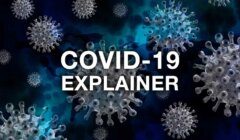Letters / Vitamin D3 and a global exit strategy from Covid-19
While the world is on hold as Covid-19 accelerates its global rampage, an exit strategy seems many months away. Herd immunity is a distant prospect, as are vaccines or drug treatments. However, there is a measure with the potential to help in this crisis at the cost of about 1p/day per capita that would promote our defences, vitamin D3.
This steroid hormone promotes the innate immune system, our first line of defence against microbes, including corona viruses, but the UK population is commonly D3-deficient, often severely, as is also common globally.
We suggest, therefore, based on the accompanying scientific and medical evidence that efforts be made to improve vitamin D repletion to help reduce both morbidity and mortality from, and perhaps also susceptibility to, Covid-19.
We are chronically undersupplied
Vitamin D (D3) is the sunshine vitamin. Our skin makes it under summer sun but most British people don’t make enough because we live and work indoors, live at high latitude and eat little ‘wild’ oily fish (the only good food source of this vitamin), while deficiency is also a global problem.
Scientific evidence from peer reviewed publications shows that vitamin D is needed both for healthy bones and for a healthy immune system which can defend us against most bacteria and viruses at adequate blood levels of the vitamin D metabolite 25(OH)D by gene modulation, which also reduces inappropriate inflammation.
What is an adequate blood level of 25(OH)D?
25 nmol/l was thought enough until 20 years ago, now we know it should be more than 50 nmol/l, a target used throughout the NHS. Higher levels are advised by many experts at 100 – 150 nmol/l, for optimal health (1), as are achieved by natives of the tropics.
We have a high degree of deficiency, worst in Scotland
Become a member of Shetland News
One third to a half of all people are deficient across the UK, with severe deficiency increasingly common in the North.
Benefits of supplementation
In addition to the prevention of rickets and osteomalacia, and reduction of the risks of increasing numbers of chronic disorders, both cancer survival and the risk of getting certain cancers are reduced by better vitamin D status (2-6).
Respiratory infection rate reduction
Evidence from animal, cell and molecular research shows that lack of vitamin D increases the risks of many chronic diseases; supplementation of deficient people can reduce many such risks, including upper respiratory tract infections as shown in a summary of 25 studies where deficient subjects amongst 11,000 participants supplemented with vitamin D showed over 70 % reduction in infection rates with certain common viruses. (7).
A recent review concludes: “To reduce risk of infection, it is recommended that people at risk of influenza and/or Covid-19 consider taking 10,000 IU/d of vitamin D3 for a few weeks to rapidly raise 25(OH)D concentrations, followed by 5000 IU/d. The goal should be to raise 25(OH)D concentrations above 40–60 ng/ml (100–150 nmol/l).” (8)
Those authors called for randomised trials of vitamin D in Covid-19 patients. Meanwhile, the evidence justifies ensuring that Covid-19 patients are not deficient, measuring serum 25(OH)D where possible, but more importantly, ensuring adequate supplemental intakes for all such patients. (9).
Barbara Boucher, honorary professor, London
Peter Cobbold, emeritus professor, cell biology, Liverpool
David Grimes, retired consultant physician, Manchester
Helga Rhein, retired general practitioner, Edinburgh
- https://www.grassrootshealth.net/wp-content/uploads/2017/12/scientists_call-to-daction_121817.pdf
- https://www.bmj.com/content/356/bmj.i6583
- https://www.bmj.com/content/356/bmj.i6583
- https://www.bmj.com/content/356/bmj.i6583
- https://www.bmj.com/content/356/bmj.i6583
- https://www.ncbi.nlm.nih.gov/pubmed/30654108
- https://www.bmj.com/content/356/bmj.i6583
- https://www.preprints.org/manuscript/202003.0235/v2
- https://docs.google.com/document/d/1jffdZOSuIA64L_Eur8qyCQ12T7NXrHSKPxtMe134C0Y/edit
Become a member of Shetland News
Shetland News is asking its readers to consider paying for membership to get additional perks:
- Removal of third-party ads;
- Bookmark posts to read later;
- Exclusive curated weekly newsletter;
- Hide membership messages;
- Comments open for discussion.
If you appreciate what we do and feel strongly about impartial local journalism, then please become a member of Shetland News by either making a single payment, or setting up a monthly, quarterly or yearly subscription.

















































































